Search Results
Showing results 221 to 240 of 248
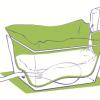
Make a Model Caldera
Source Institutions
In this quick activity (page 2 of PDF under GPS: Lava Flow Activity), learners will model how large depressions near the top of a volcano are formed by using an inflating and deflating balloon submerg
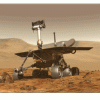
Design a Lunar Rover!
Source Institutions
In this team design challenge (page 2-10 of PDF), learners design and build a model of a Lunar Transport Rover that will carry equipment and people on the surface of the Moon.
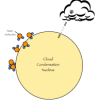
Do Cities Affect the Weather?
Source Institutions
In this activity, learners explore clouds and how they form.

Clean Water: Is It Drinkable?
Source Institutions
In this activity, learners simulate nature's water filtration system by devising a system that will filter out both visible and invisible pollutants from water.
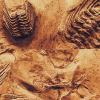
Familiar Fossils
In this activity, learners explore different types of fossils by making their out of dough and objects from around the house.
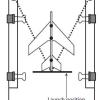
Geometry and Algebra: The Future Flight Equation
Source Institutions
In this activity, learners discover how NASA engineers develop experimental aircraft.
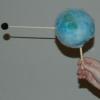
Exploring Strange New Worlds
Source Institutions
This fun and simple hands-on astronomy activity lets learners explore model planets (that they or an educator will create), using methods NASA scientists use to explore our Solar System.
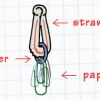
Deep Sea Diver
Source Institutions
In this ocean engineering activity, learners explore buoyancy and water displacement. Then, learners design models of deep sea divers that are neutrally buoyant.

Crazy Camouflage
Source Institutions
In this activity about camouflage, learners create a model that shows how a flounder is able to blend into a variety of environments.

Scale Models
Source Institutions
In this activity, learners explore the relative sizes and distances of objects in the solar system.

Shaking It!
Source Institutions
In this experiment, learners design and build a model room in a shoebox and furnish it with tiny furniture.
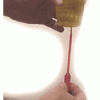
Single Serving Volcanism
Source Institutions
In this activity, learners eat a snack and make a model of the plumbing system of a volcano.

Living Bones, Strong Bones
Source Institutions
In this activity about engineering, nutrition, and physical activity, learners design and build a healthy bone model of a space explorer which is strong enough to withstand increasing amounts of weigh
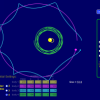
My Solar System
Source Institutions
In this online activity, learners build their own system of heavenly bodies and watch the gravitational ballet.
Finding the Right Crater
Source Institutions
This quick demonstration (on page 11 of PDF) allows learners to understand why scientists think water ice could remain frozen in always-dark craters at the poles of the Moon.
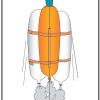
Heavy Lifting
Source Institutions
In this activity, learners work in NASA teams to build balloon-powered rockets using identical parts and compete to launch the greatest number of paper clips to "space" (the ceiling).
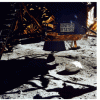
Design a Landing Pod!
Source Institutions
In this team design challenge (page 11-18 of PDF), learners design and build a Landing Pod for a model Lunar Rover (previously built in activity on page 1-10 of PDF).

Aerogel-lo
Source Institutions
This demonstration (on pages 9-11) uses gelatin and lead pellets to model how aerogel, a technology used by NASA spacecrafts, is used to capture comet particles.

Earth's Water: A Drop in Your Cup
Source Institutions
This creative lesson plan provides a visual way for learners to gain knowledge about the finite amount of fresh water on Earth and encourages the discussion of the various ways to conserve this resour
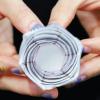
Space Origami: Make Your Own Starshade
Source Institutions
In this activity, learners cut out and fold their own collapsible origami starshade, an invention that shields a telescope's camera lens from the light of a distant star so that NASA scientists can ex
